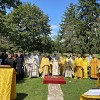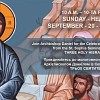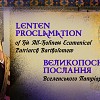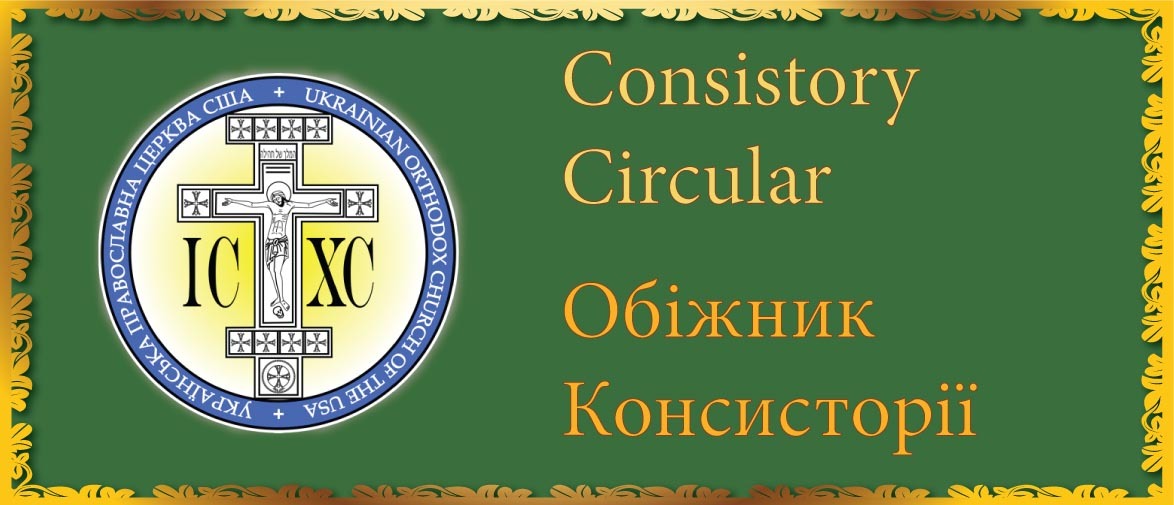+ B A R T H O L O M E W
BY GOD’S MERCY ARCHBISHOP OF CONSTANTINOPLE-NEW ROME
AND ECUMENICAL PATRIARCH
TO ALL THE PLENITUDE OF THE CHURCH GRACE, PEACE AND MERCY
FROM THE MAKER OF ALL CREATION
OUR LORD, GOD AND SAVIOR JESUS CHRIST
Dearest brother Hierarchs and beloved children in the Lord,
It is a shared conviction that, in our time, the natural environment is threatened like never before in the history of humankind. The magnitude of this threat becomes manifest in the fact that what is at stake is not anymore the quality, but the preservation of life on our planet. For the first time in history, man is capable of destroying the conditions of life on earth. Nuclear weapons are the symbol of man’s Promethean titanism, the tangible expression of the “complex of omnipotence” of the contemporary “man-god.”
In using the power that stems from science and technology, what is revealed today is the ambivalence of man’s freedom. Science serves life; it contributes to progress, to confronting illnesses and many conditions that were hitherto considered “fateful”; it creates new positive perspectives for the future. However, at the same time, it provides man with all-powerful means, whose misuse can be turned destructive. We are experiencing the unfolding destruction of the natural environment, of biodiversity, of flora and fauna, of the pollution of aquatic resources and the atmosphere, the progressing collapse of climate balance, as well as other excesses of boundaries and measures in many dimensions of life. The Holy and Great Council of the Orthodox Church (Crete, 2016) rightly and splendidly decreed that “scientific knowledge does not mobilize the moral will of man, who knows the dangers but continues to act as if he did not know.” (Encyclical, § 11)
It is apparent that the protection of the common good, of the integrity of the natural environment, is the common responsibility of all inhabitants of the earth. The contemporary categorical imperative for humankind is that we live without destroying the environment. However, while on a personal level and on the level of many communities, groups, movements and organizations, there is a demonstration of great sensitivity and ecological responsibility, nations and economic agents are unable – in the name of geopolitical ambitions and the “autonomy of the economy” – to adopt the correct decisions for the protection of creation and instead cultivate the illusion that the pretended “global ecological destruction” is an ideological fabrication of ecological movements and that the natural environment has the power of renewing itself. Yet the crucial question remains: How much longer will nature endure the fruitless discussions and consultations, as well as any further delay in assuming decisive actions for its protection?
The fact that, during the period of the pandemic of the novel coronavirus Covid-19, with the mandatory restrictions of movement, the shutdown of factories, and the diminishment in industrial activity and production, we observed a reduction of pollution and encumbrance of the atmosphere, has proved the anthropogenic nature of the contemporary ecological crisis. It became once again clear that industry, the contemporary means of transportation, the automobile and the airplane, the non-negotiable priority of economic indicators and the like, negatively impact the environmental balance and that a change of direction toward an ecological economy constitutes an unwavering necessity. There is no genuine progress that is founded on the destruction of the natural environment. It is inconceivable that we adopt economic decisions without also taking into account their ecological consequences. Economic development cannot remain a nightmare for ecology. We are certain that there is an alternative way of economic structure and development besides the economism and the orientation of economic activity toward the maximization of profiteering. The future of humanity is not the homo œconomicus.
The Ecumenical Patriarchate, which in recent decades has pioneered in the field of the protection of the creation, will continue its ecological initiatives, the organization of ecological conferences, the mobilization of its faithful and especially the youth, the promotion of the environment’s protection as a fundamental subject for interreligious dialogue and the common initiatives of religions, the contacts with political leaders and institutions, the cooperation with environmental organizations and ecological movements. It is evident that the collaboration for the protection of the environment creates additional avenues of communication and possibilities for new common actions.
We repeat that the environmental activities of the Ecumenical Patriarchate are an extension of its ecclesiological self-consciousness and do not comprise a simple circumstantial reaction to a new phenomenon. The very life of the Church is an applied ecology. The sacraments of the Church, its entire life of worship, its asceticism and communal life, the daily life of its faithful, express and generate the deepest respect for creation. The ecological sensitivity of Orthodoxy was not created by but emerged from the contemporary environmental crisis. The struggle for the protection of creation is a central dimension of our faith. Respect for the environment is an act of doxology of God’s name, while the destruction of creation is an offense against the Creator, entirely irreconcilable with the basic tenets of Christian theology.
Most honorable brothers and dearly beloved children,
The ecofriendly values of the Orthodox tradition, the precious legacy of the Fathers, constitute an embankment against the culture, whose axiological foundation is the domination of man over nature. Faith in Christ inspires and strengthens the human endeavor even before the immense challenges. From the perspective of faith, we are able to discover and assess not only the problematic dimensions, but also the positive possibilities and prospects of contemporary civilization. We call upon Orthodox young men and women to realize the significance of living as faithful Christians and contemporary people. Faith in the eternal destiny of man strengthens our witness in the world.
In this spirit, from the Phanar, we wish all of you a propitious and all-blessed new ecclesiastical year, fruitful in Christ-like deeds, for the benefit of all creation and to the glory of the all-wise Creator of all. And we invoke upon you, through the intercessions of the All-Holy Theotokos, the Pammakaristos, the grace and mercy of the God of wonders.
September 1, 2020
+Bartholomew of Constantinople
Fervent supplicant of all before God

















